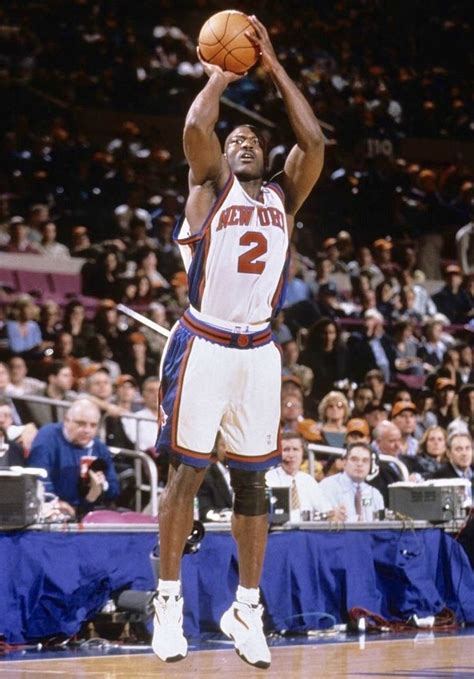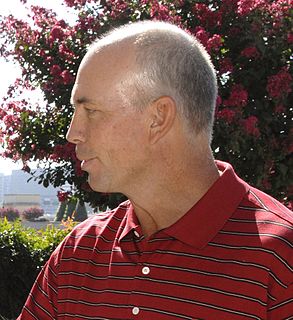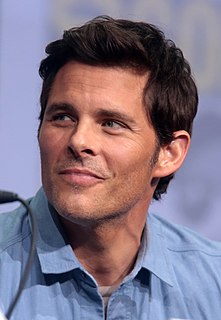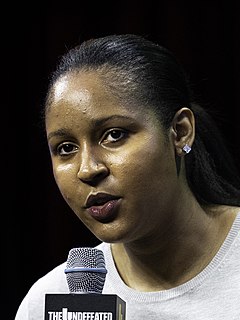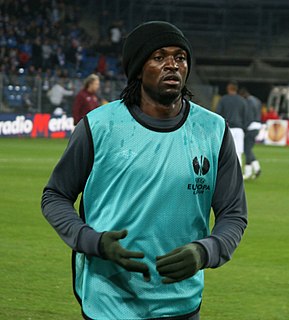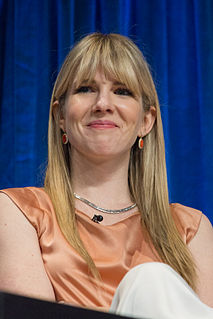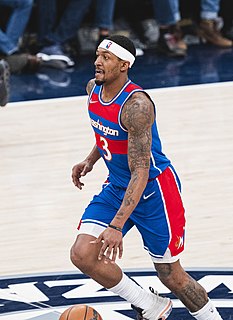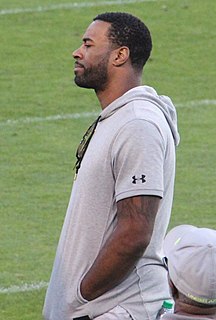A Quote by Larry Johnson
JC was good for me. I had a coach who kept me into things and thinking positive. It was good basketball, but more than that it prepared me for the academic scene at a university.
Related Quotes
When I was 17, I made the decision to have a good attitude. I was a junior in high school; the coach said I was going to be the captain of my basketball team. I thought – that surprised me because I wasn’t the best player. John Thomas was better than me, and I was probably second or third best player. And I kept thinking, “Why am I going to be the captain?” I think everybody else was thinking that too. And the coach then answered, “The reason John is going to be the captain is he has the best attitude on the team. He encourages others, he believes we can win, he never gives up.”
Other than my parents, no one had a bigger influence on my life than Coach Smith. He was more than a coach – he was my mentor, my teacher, my second father. Coach was always there for me whenever I needed him and I loved him for it. In teaching me the game of basketball, he taught me about life. My heart goes out to Linnea and their kids. We've lost a great man who had an incredible impact on his players, his staff and the entire UNC family.
But something magical happened to me when I went to Reardan. Overnight I became a good player. I suppose it had something to do with confidence. I mean, I'd always been the lowest Indian on the reservation totem pole - I wasn't expected to be good so I wasn't. But in Reardan, my coach and the other players wanted me to be good. They needed me to be good. They expected me to be good. And so I became good. I wanted to live up to the expectations. I guess that's what it comes down to. The power of expectations. And as they expected more of me, I expected more of myself, and it just grew and grew.
I have always been good at auditioning, but maybe because I had a good trick at the beginning. I would pretend that my agent gave me the wrong scene or lines. They would take pity on me and hand me the right scene. I would act like I had never seen this before - and then do pretty well considering I had already rehearsed it.
For me, in movies, it's always a mixed bag. I've never made a movie where I thought, "You were really good in that movie; you were good all the time." No. It's always, "You didn't get it, you didn't do it in that scene, but the other scene is pretty good." So I just hope that in balance there's more good scenes than not.
Many faculty retreated into academic specializations and an arcane language that made them irrelevant to the task of defending the university as a public good, except for in some cases a very small audience. This has become more and more clear in the last few years as academics have become so insular, often unwilling or unable to defend the university as a public good, in spite of the widespread attacks on academic freedom, the role of the university as a democratic public sphere, and the increasing reduction of knowledge to a saleable commodity, and students to customers.
For me, coming up, the first I had ever heard of basketball? It was from my mom. She was a really good player back in her day, and even played college ball at Kentucky State. And then she went on to become a coach and an AD after that - so she always stayed real close to the game, and kept it a part of her life.
